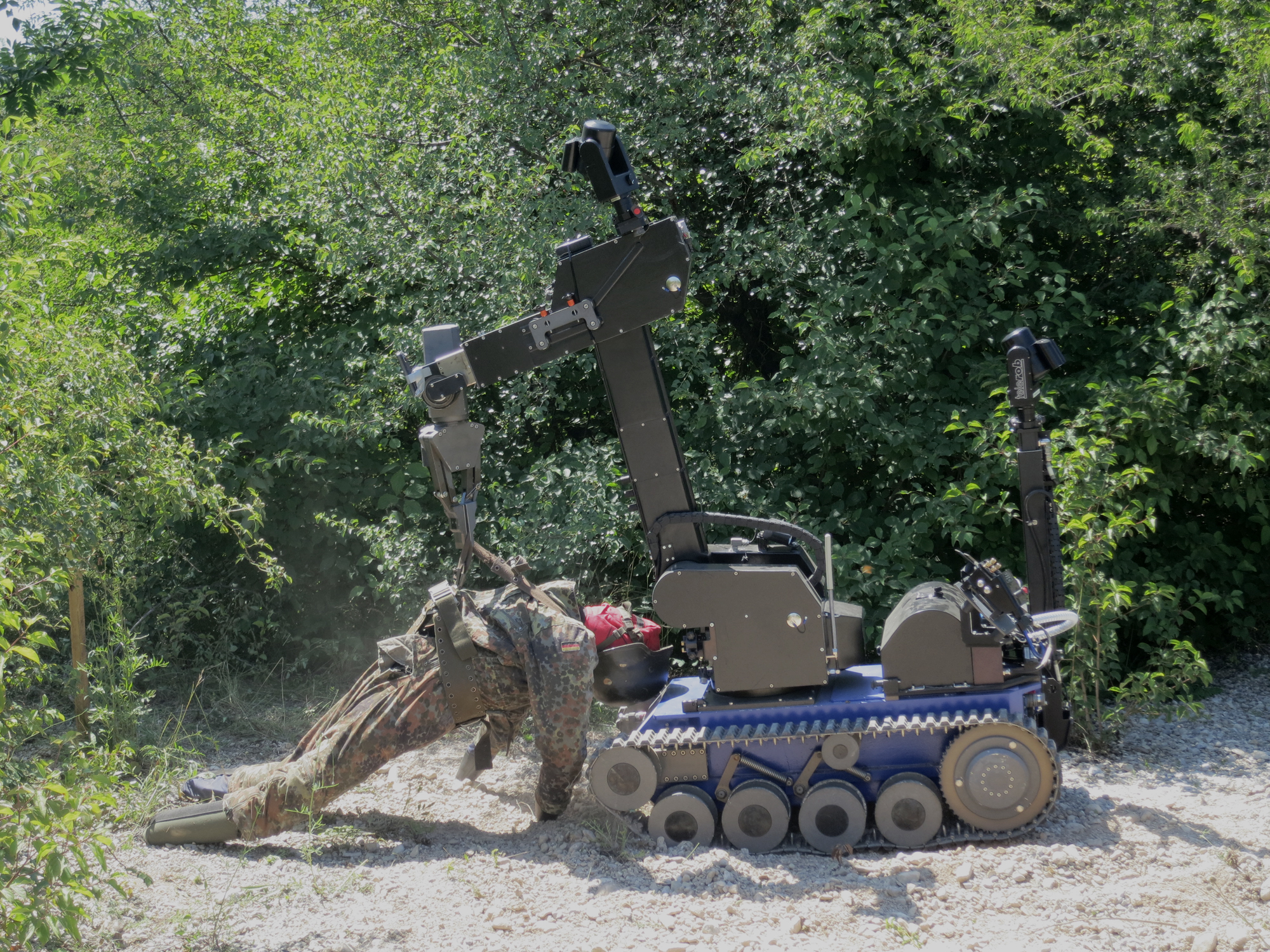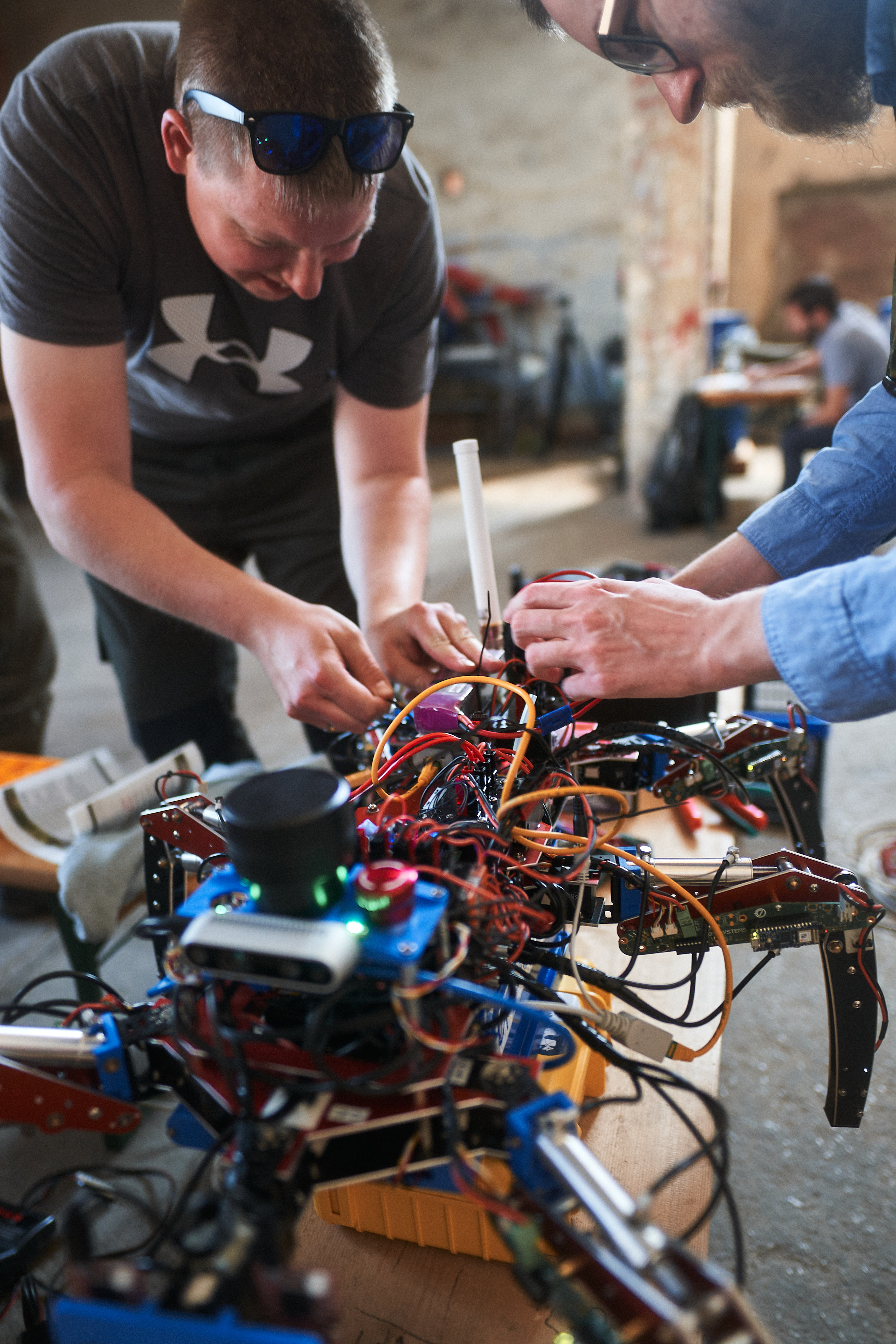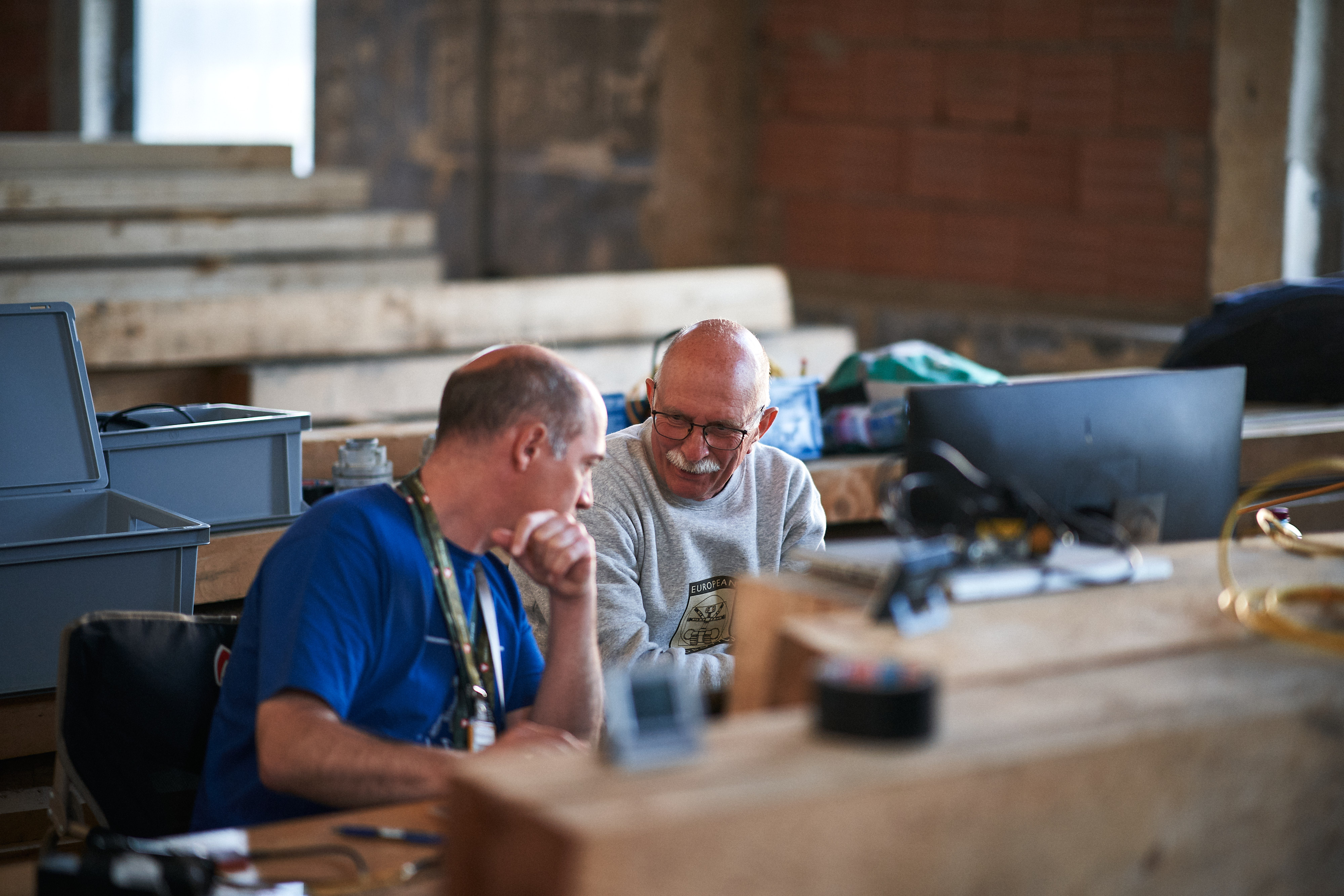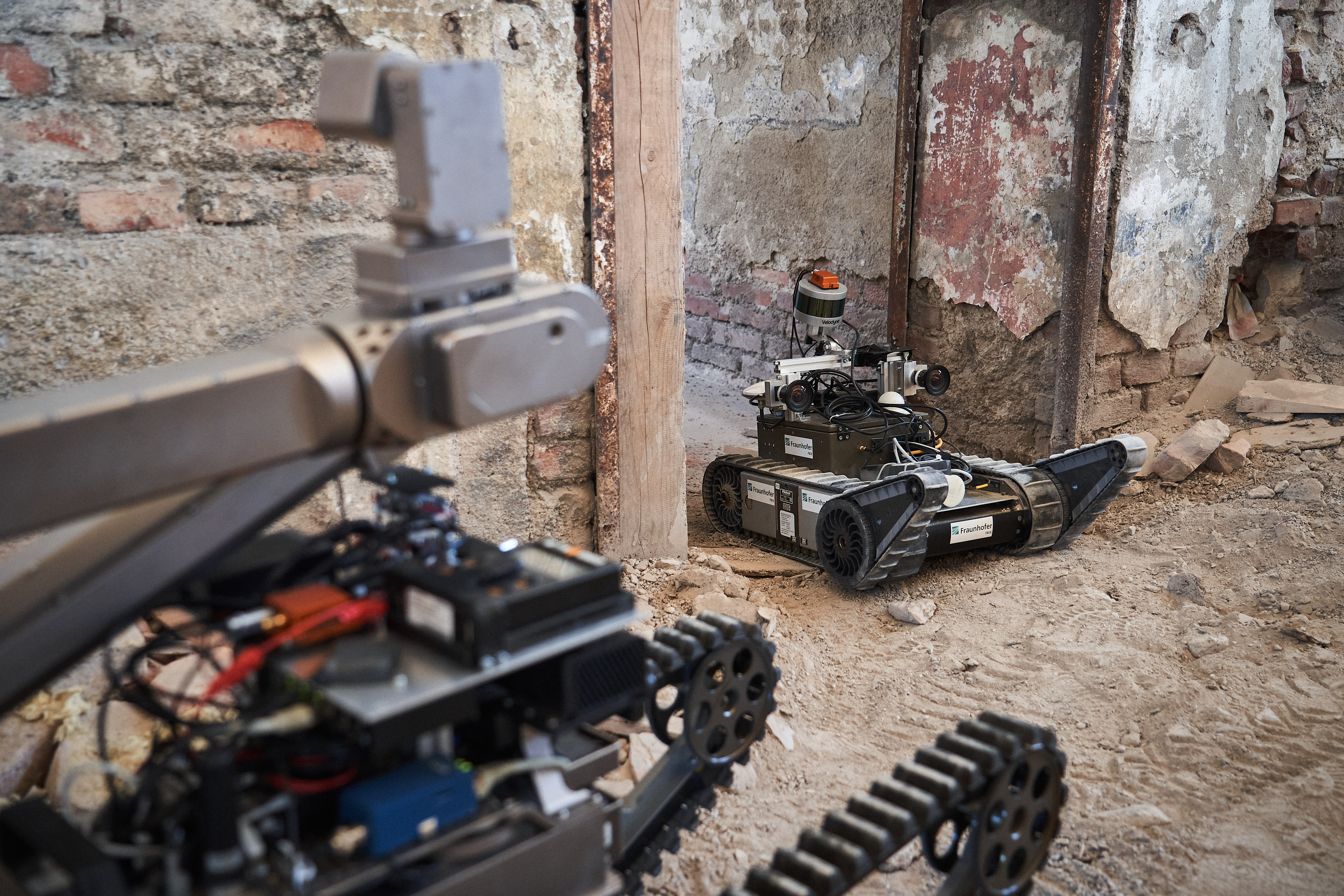Military robots take part in exhibition in Trier
Preparation is almost complete, all the scenarios have been planned and the tasks have been finalised: From 24–28 June this year, the elite of military robotics will gather for the 12th European Land Robot Trial (ELROB), which will take place in Trier, Germany for the first time. On the grounds of the Military Technical Centre for Land-Based Vehicle Systems, Combat Engineering and Troop Technology, 18 teams from around the world will take part in five challenging disciplines and test the current performance level of their robotic systems. Once again, there are no changes to ELROB’s undisputed unique selling point this year: realistic scenarios are paramount.



The Fraunhofer Institute for Communication, Information Processing and Ergonomics FKIE in Wachtberg is organising the benchmarking event for the twelfth time — in close cooperation with the German Armed Forces Development Agency. “The scenarios and tasks are geared directly to the needs of the German armed forces — and for good reason,” explains Dr Frank E. Schneider, Deputy Head of the FKIE “Cognitive Mobile Systems” (CMS) research department. “Although robotisation of the armed forces is more relevant today than ever before, there are still significant development deficits, particularly in military robotics.”
Premiere of ELROB 2006 in Hammelburg
It was against this backdrop that Schneider organised the first ELROB event back in 2006, at the military training area in Hammelburg. Since then, the major event has been held every two years at different locations in Europe. “Our aim is to bring together international experts from the user side and representatives from the fields of research & technology and industry,” explains Schneider. “The real-world tasks coupled with the opportunity to discuss the needs of users face-to-face is what makes ELROB so exciting for participants.”
This is highlighted not least by the growing number of participants at ELROB over the years. 18 teams have registered their robotic systems for the 2024 benchmarking event, almost half of which are attending for the first time. The teams from Florida and Montreal have the longest journeys to Trier, while others are coming from Sweden, Finland, Poland and Turkey.
The schedule that awaits them will certainly pose a challenge. The disciplines are grouped into the following categories: reconnoitring of structures, reconnaissance and disposal of bombs and explosive devices, search & rescue (SAR) / CasEvac, transport – mule, and transport – convoying. Under the stewardship of American robotics expert Prof. Dr Henrik I. Christensen, an international jury will assess how well the teams cope with the respective tasks.
Locked doors and booby traps
Schneider’s team of organisers has come up with a number of new ideas for 2024. For example, the reconnoitring scenario involves sounding out the local circumstances following a fictitious accident in a tunnel — for the first time, the script calls for complete darkness in the roughly 70-metre-long structure. Locked doors, obstacles of all kinds and even booby traps are some of the potential difficulties that the teams have to overcome. In the convoying discipline, on the other hand, the participants have to be prepared for difficulties with the GPS signal, for example — another challenge that is entirely realistic. This year, the dummies that need to be rescued in the “CasEvac” category are real heavyweights, weighing in at 70 kilograms. In previous ELROB events, the dummies were considerably lighter.
FKIE employee, Hans-Ludwig Wolf, was involved in developing the tasks, scenarios and rating system — as he has been for every ELROB event since 2006. “Our aim is to design a course that is appealing from a military, technical and scientific perspective, but is also manageable for the teams,” he explains.
A kind of liaison between the military and the scientific community
The 70-year-old actually retired four years ago, but he is happy to take a break from this for ELROB: Like his FKIE colleagues Frank Höller and Dr Matthias Nieuwenhuisen, he will be in Trier as a scientific supervisor, “as a kind of liaison between the military and the scientific community,” as Wolf himself describes it. In his view, ELROB has lost none of its appeal, even in its twelfth incarnation: “People come together from all over the world, program their robots late into the night and are sad when a 14-hour day is over,” he says. “There is a great sense of community and everyone enjoys what they do — it’s something that is very special to experience.”
12th European Land Robot Trial
24–28 June 2024, Trier, Germany
Further information: www.elrob.org
